Travelling to China can feel overwhelming, especially with the paperwork involved in visa applications and the strict entry rules. The process of navigating all the requirements might add some stress to your pre-trip planning. But the good news is that China has recently updated its visa policies, making it much easier to visit! With fewer hurdles to jump through, now is the perfect time to explore this incredible country. This travel guide will also cover the best China travel tips to make your trip smoother, so we can stress less and focus more on the adventure ahead.
Also read: China Border Entry 2024: What to Know About China’s New Visa Policies
Money matters
Should you bring cash to China?
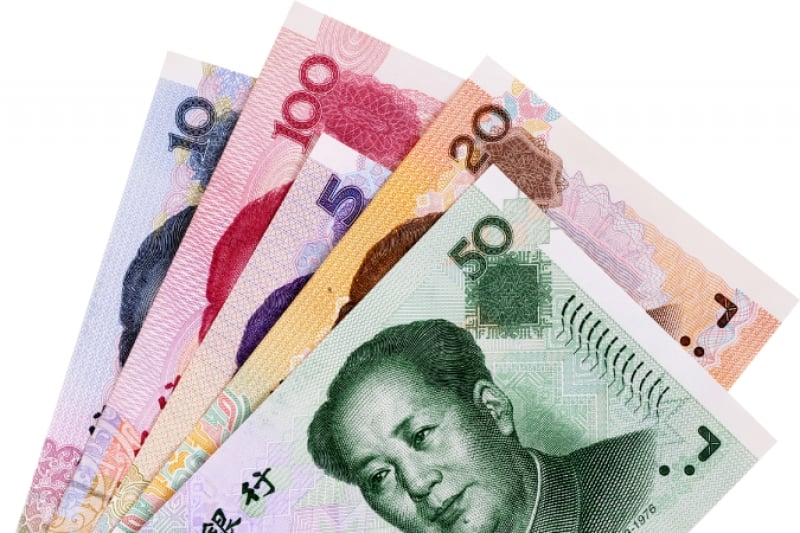
Image credit: kstudio via Canva Pro
Let’s start off by talking about cash in China. While many videos and articles online do talk about how cashless the society is, most shops do still accept cash. The first of our China travel tips would be to carry some cash around with you so be sure to give your money changer a visit before flying off!
TripZilla Tip: Break your big notes by buying something from the convenience stores at the airport when you land. These smaller denominations will be useful to make low-cost purchases!
Having said that, mobile payments are extremely convenient and we would highly recommend setting up both Alipay and WeChat prior to your trip.
Alipay: your go-to for payments in China
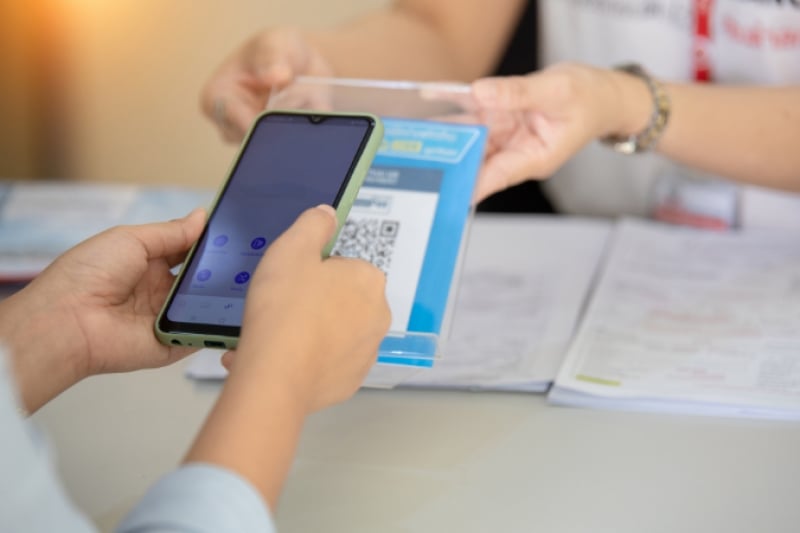
Image credit: nikomsolftwaer via Canva Pro
Alipay is the app you’ll need to make most of your payments from public transport to food. Download the app and create an account using your phone number or email. You can then link a multi-currency card, verify your identity and you’ll have access to a range of features. Book hotels, and trains (via Trip) conveniently using the app. Don’t forget to activate your QR payment code to make purchases with a simple scan!
Do note that if your account is linked to an international bank card, you will be prompted for account identity information once your cumulative payments reach RMB15,000. There is also a 3% transaction fee for payments above RMB200.
WeChat: more than just messaging
If you’re thinking “Isn’t WeChat a messaging app like WhatsApp? Did you put it under the wrong header?”, allow me to explain. While WeChat is highly used for messaging, it comes with countless other built-in features which will be useful for payments during your trip.

Image credit: andresr via Canva Pro
Some restaurants in China have no physical menus, instead, they rely on digital platforms like WeChat for orders. They often provide a QR code, usually found at the table, for you to scan. Once you’ve made your choices, you can place the order and pay all within the app.
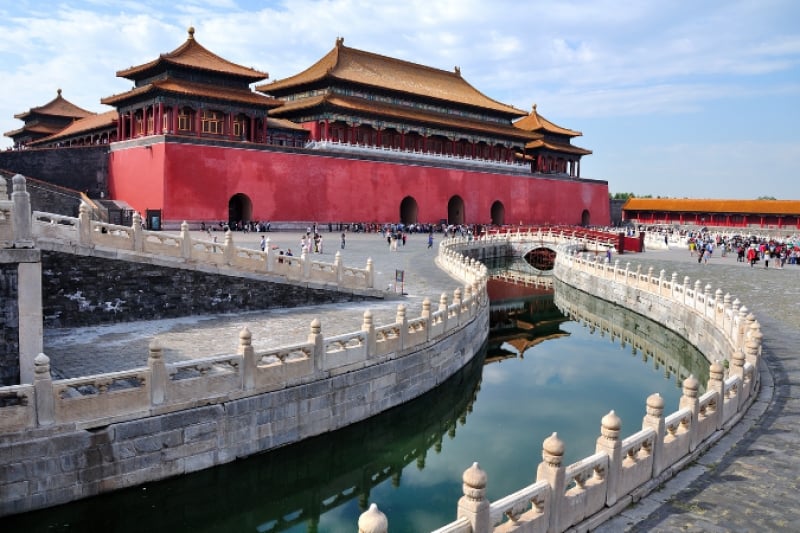
Image credit: Song Yuan via Canva Pro
When it comes to booking tickets for popular tourist attractions like the Forbidden City or Tiananmen Square, WeChat is once again essential. These attractions often release a limited number of tickets through WeChat’s mini program about a week before the scheduled date, and these tend to sell out quickly. To avoid missing out, it’s highly recommended to log into WeChat early and book your tickets as soon as they’re available to prevent any disappointment!
Travel timings
Best time to visit China
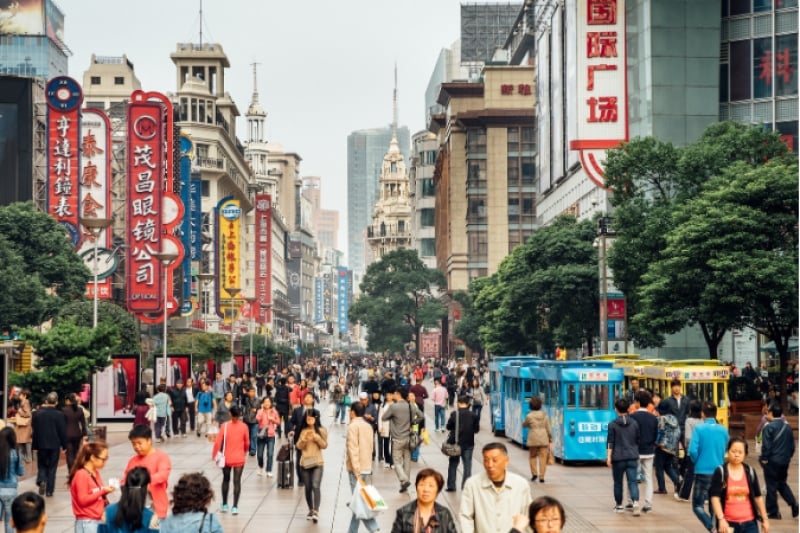
Image credit: Nikada via Canva Pro
One of the key China travel tips would be to avoid planning a trip that coincides with China’s public holidays as many locals will be returning to their hometowns to visit their families. Trust me, you won’t want to jostle with the locals for accommodation, transportation and attractions. In addition to the crowd, many shops may be closed and the prices of accommodation can even go up to three times that of off-peak periods.
The main public holiday windows include Chinese New Year (between Jan and Feb each year), Labour Day (the first week of May) and National Day (the first week of Oct).
Public transport punctuality in China

Image credit: Leung Cho Pan via Canva Pro
Public transportation in China, especially high-speed trains, operates on very strict schedules. Trains usually leave exactly on time, so it’s advisable to arrive at the station early. While we don’t recommend experiencing this, what happens if you miss your train in China? The good news is that you can exchange your ticket for another train departing on the same date at the ticketing window!
Polite practices
Tipping culture
Tipping is not a common practice in China and is generally not expected. In fact, in many places, tipping can be seen as inappropriate or even confusing. This applies to restaurants, taxis, and most service industries, where staff typically do not anticipate tips. In the event you meet a tour guide who provides exceptional service, a small tip may be appreciated, but it is best to offer it discreetly. In these cases, it’s a gesture of gratitude rather than an obligation.
Haggling etiquette
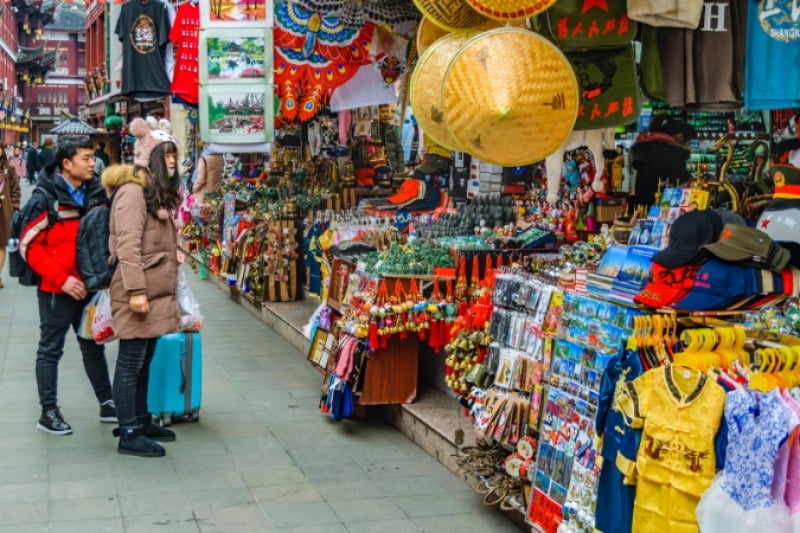
Image credit: DanFLCreativo via Canva Pro
Haggling, or bargaining, is common in many markets and smaller shops in China, especially those selling souvenirs, clothes, and other goods in tourist-heavy areas. Street markets and smaller stores usually allow room for negotiation, and sellers may start with a higher price expecting customers to bargain. A good rule of thumb is to counteroffer around half of the initial price and work your way from there.
However, note that haggling is not appropriate in larger stores where prices are fixed. While it can be tempting to push for the best deal, be mindful not to over-negotiate and risk offending the seller. A lighthearted, respectful approach will go a long way, and if the price doesn’t work for you, it’s perfectly acceptable to walk away.
Accessible apps
It’s no secret that you can’t freely access Google, Grab or many other social media apps like Whatsapp or Instagram in China. So here are our China travel tips, get a VPN and also download China’s equivalent of these apps for your stay there. These apps are widely used, well-integrated with the local systems, and can make navigating everyday tasks and travelling around China much easier.
Maps
Like mobile payment options, there are 2 main map apps to use in China– Gaode Maps and Baidu Maps. While there isn’t an English version of these maps, you can search for locations in English or Hanyu Pinyin, and the apps will still find the correct address. Gaode Maps, in particular, is known for its precise directions for walking, driving, and public transportation. Baidu Maps, on the other hand, is praised for its detailed route planning and navigation for longer trips.
Transportation
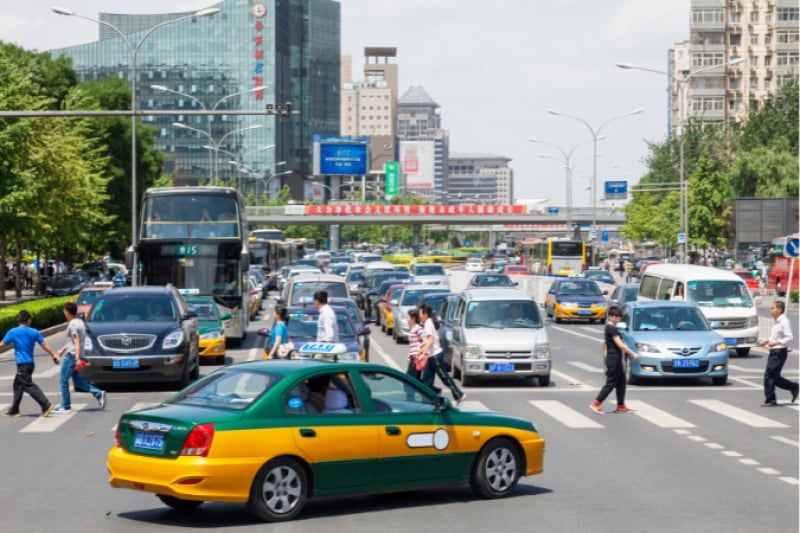
Image credit: powerofforever via Canva Pro
For ride-hailing services, Didi is China’s equivalent to Grab or Uber and works in a very similar way. You simply input your pick-up and drop-off locations, choose your preferred vehicle type, and confirm the booking. The app is easy to use, and rides are generally quite affordable compared to prices in many other countries.
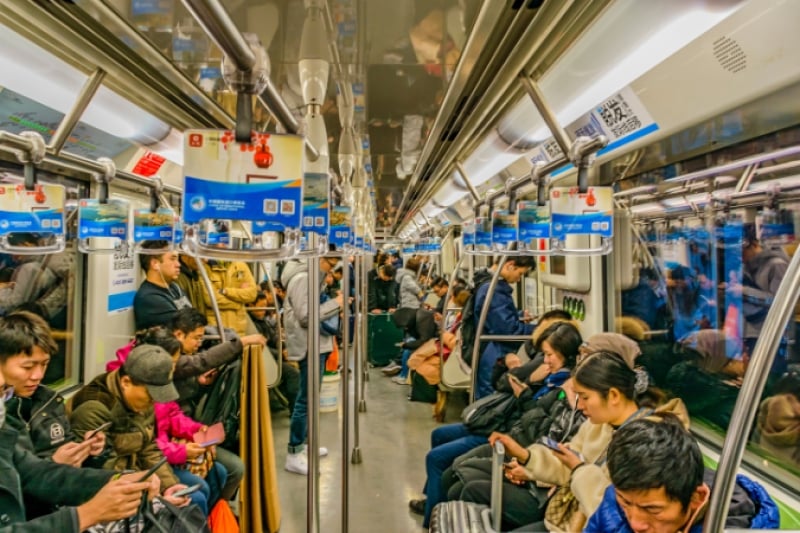
Image credit: DanFLCreativo via Canva Pro
If you plan to use public transport, Metroman is a must-have app for navigating China’s extensive metro systems. This metro guide provides real-time updates on metro timings, fares, and station timetables, making it incredibly useful for anyone using subways to get around. The app covers major cities like Beijing, Shanghai, Guangzhou, among others, ensuring you can quickly find your way even in new cities.
Translation
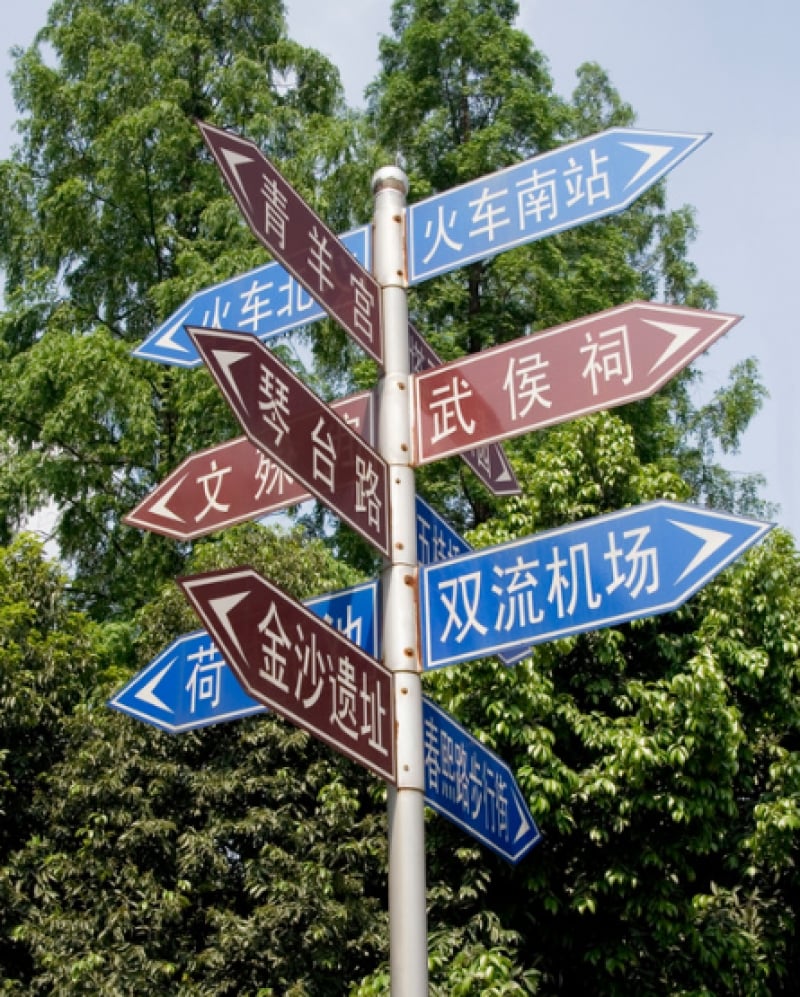
Image credit: Valmol48 via Canva Pro
Let me introduce you to my ultimate study companion, Pleco. This app is a must for all your language translation needs. The app allows you to scan Chinese characters from signs or menus and get an instant translation. This is particularly helpful when you’re out exploring and come across Chinese-only menus or street signs.
Purchases

Image credit: mixetto via Canva Pro
For ordering food and shopping online, Meituan is one of the most popular apps in China. Like most Chinese apps, Meituan supports payment through Alipay or WeChat, further simplifying transactions during your stay.
Also read: Our One-Month China Itinerary: Beijing, Xi’an, Huashan & More
Travelling to China may seem daunting at first, especially if you’re unfamiliar with the language or local customs. However, with these China travel tips and a bit of preparation, your trip can be smooth, enjoyable, and full of unforgettable experiences. So, pack your bags, download those apps, and get ready to embark on an adventure of a lifetime!




